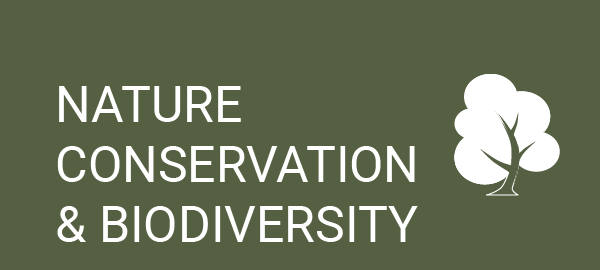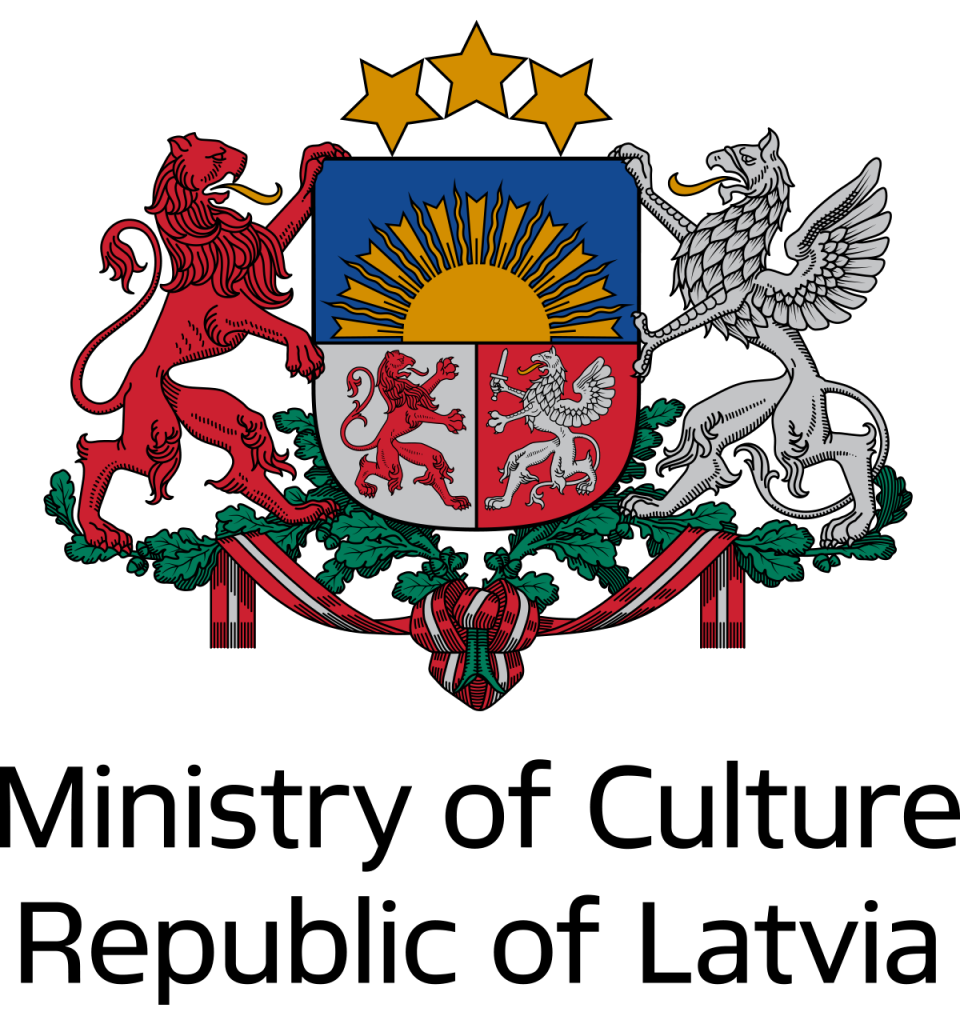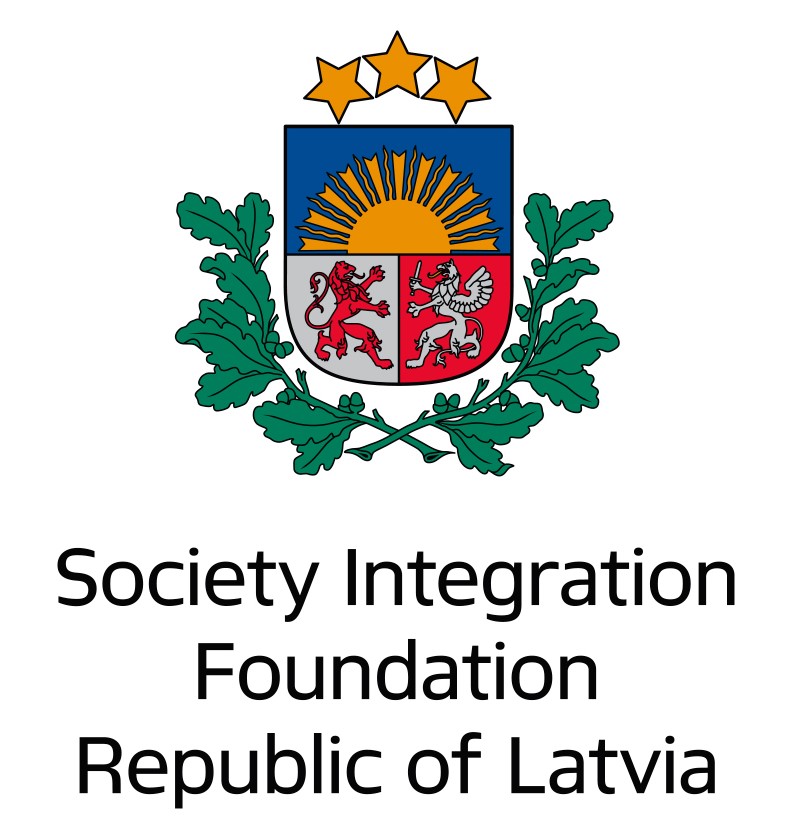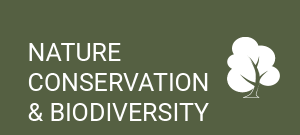In summer 2023 Baltic Environmental Forum – Latvia conducted a social survey on the urban green spaces important for people in the three Latvian cities involved in LIFE LATESTadapt project: Riga, Cesis and Valmiera.
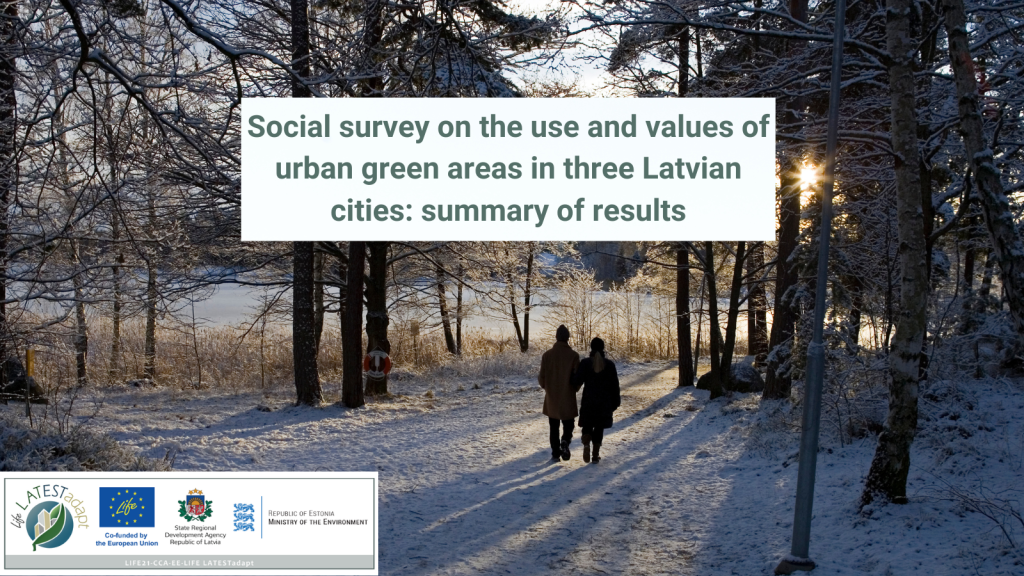 The surveying took place from May to August 2023. All residents, as well as frequent visitors of Riga, Cesis and Valmiera, were invited to participate in the survey. A total of 1030 participants completed the survey, providing more than 1180 data points with urban green spaces that are important for them.
The surveying took place from May to August 2023. All residents, as well as frequent visitors of Riga, Cesis and Valmiera, were invited to participate in the survey. A total of 1030 participants completed the survey, providing more than 1180 data points with urban green spaces that are important for them.
The survey was carried out in cooperation with project partners – municipalities of Cesis, Valmiera and Riga. The survey results will be used to integrate social values of the urban green areas in the green infrastructure mapping that is being developed in the LATESTadapt project for Riga, Cesis and Valmiera.
About the cities
Riga is the capital city and also the largest city of Latvia. Riga has more than 630 000 residents, and it is a distinctly multifunctional city. Although on European scale Riga can be considered a relatively green city, the distribution of green areas is uneven and Riga faces various climate change related challenges, including flooding during extreme rainfall events and the heat island effect.
Valmiera is a mid-size industrial city characterised by high economic activity. It has approx. 24 000 residents, and it is considered to be one of the few growing cities in Latvia.
The third city – Cesis – is a small and historical town that is characterised by a lot of green areas. Cesis is located right next to one of Latvian national parks – Gauja National Park. Cesis has approx. 16 000 residents.
Summary of results
Interestingly, despite the large differences between the cities (size, number of residents etc.), the survey results showed many similarities:
- In all three cities the most popular activity in urban green areas is walking. Among the most popular uses of green areas were also such activities as: enjoying the fresh air and beauty of nature, relieving stress by being in the nature. Overall, in all three cities, people use green spaces for activities that promote both physical and mental health, demonstrating the important role they play in the well-being of urban dwellers.
- In all three cities, both residents and frequent visitors are active users of urban green spaces. Approximately 90% of survey participants indicated that they had visited the marked area within the last month.
- According to survey results, the three most important values for survey participants in green spaces are: distance from home (close to home), aesthetics and pleasant atmosphere.
- About 2/3 of the survey participants wanted to see some improvements in the green area they completed the survey about. The wishes for improvements were highly diverse. Among the most popular ones were improved or renewed amenities (benches, better lighting etc.) and improved management of green areas.
- In all three cities, the majority of respondents (>80%) are interested in how their city’s green spaces are being developed and they care that the urban nature is protected.
- Results in all three cities show contrasting views on what urban green spaces should look like, with some survey participants wanting to see as many carefully maintained green spaces as possible, while others stated they value the opportunity to enjoy natural green spaces in the city. There are also different views on whether there is a place for ‘wild nature’ in cities. Support for ‘wild nature’ is relatively higher in Riga.
The biggest differences in the results were seen in the perceived access to green spaces. The highest proportion of respondents who believe that there are not enough green spaces near their place of residence is in Riga (~50%), while the lowest is in Cesis (~30%).
More detailed summary results is available here (Latvian only): https://www.bef.lv/latest-aptaujas-kopsavilkums/
Co-funded by Society Integration Foundation Republic of Latvia
